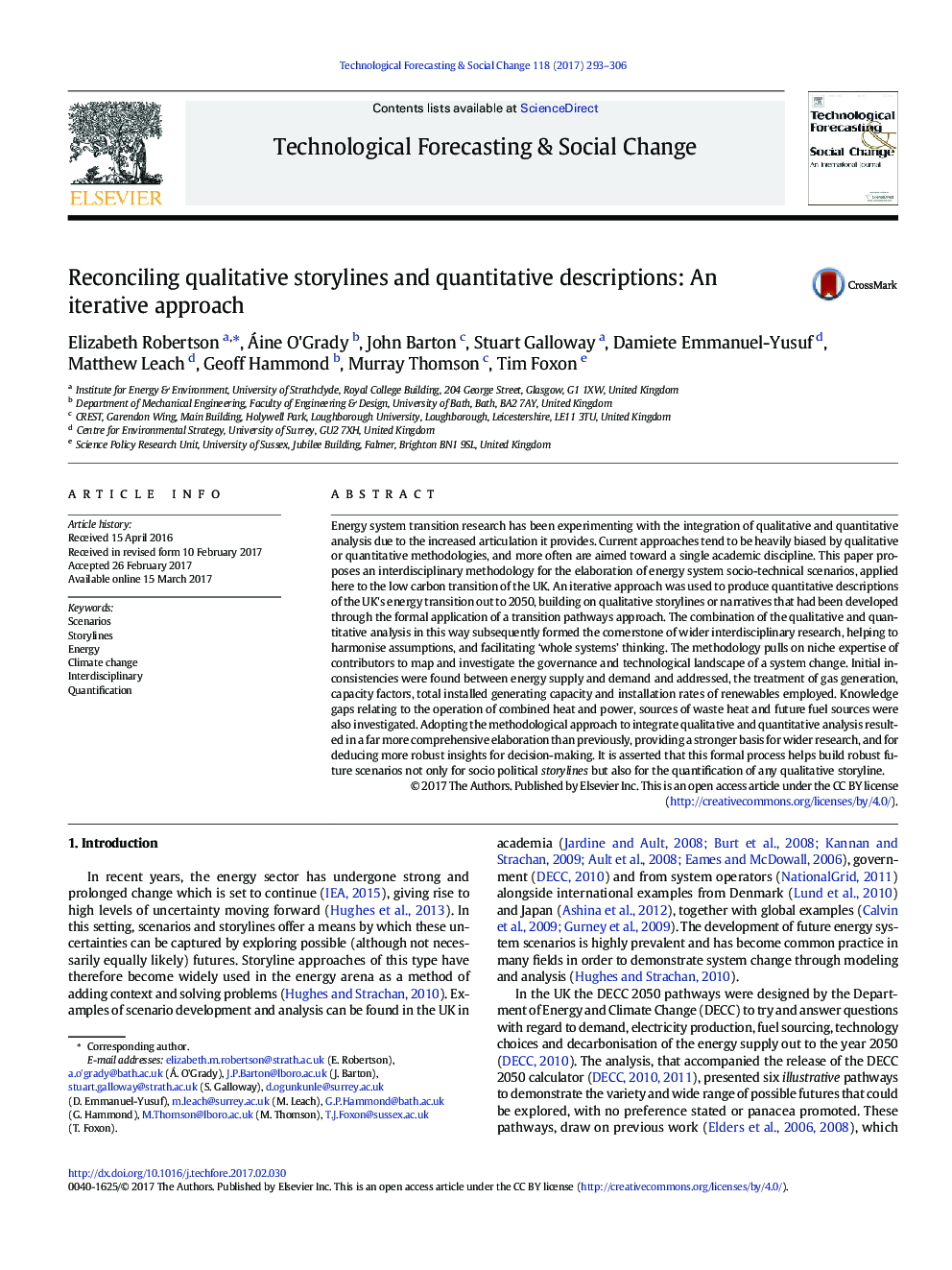| کد مقاله | کد نشریه | سال انتشار | مقاله انگلیسی | نسخه تمام متن |
|---|---|---|---|---|
| 5037053 | 1472383 | 2017 | 14 صفحه PDF | دانلود رایگان |
- Bridges the gap between qualitative storyline and quantitative models & analysis
- Presents an interdisciplinary methodology for the elaboration of socio-technical scenarios
- Demonstrates an interdisciplinary analysis of the low carbon transition of the UK power system to 2050
- Presents quantitative descriptions of the UK electricity system scenarios to 2050
- Utilizes niche expertise to inform the landscape to increase certainty of transitions
Energy system transition research has been experimenting with the integration of qualitative and quantitative analysis due to the increased articulation it provides. Current approaches tend to be heavily biased by qualitative or quantitative methodologies, and more often are aimed toward a single academic discipline. This paper proposes an interdisciplinary methodology for the elaboration of energy system socio-technical scenarios, applied here to the low carbon transition of the UK. An iterative approach was used to produce quantitative descriptions of the UK's energy transition out to 2050, building on qualitative storylines or narratives that had been developed through the formal application of a transition pathways approach. The combination of the qualitative and quantitative analysis in this way subsequently formed the cornerstone of wider interdisciplinary research, helping to harmonise assumptions, and facilitating 'whole systems' thinking. The methodology pulls on niche expertise of contributors to map and investigate the governance and technological landscape of a system change. Initial inconsistencies were found between energy supply and demand and addressed, the treatment of gas generation, capacity factors, total installed generating capacity and installation rates of renewables employed. Knowledge gaps relating to the operation of combined heat and power, sources of waste heat and future fuel sources were also investigated. Adopting the methodological approach to integrate qualitative and quantitative analysis resulted in a far more comprehensive elaboration than previously, providing a stronger basis for wider research, and for deducing more robust insights for decision-making. It is asserted that this formal process helps build robust future scenarios not only for socio political storylines but also for the quantification of any qualitative storyline.
Journal: Technological Forecasting and Social Change - Volume 118, May 2017, Pages 293-306
